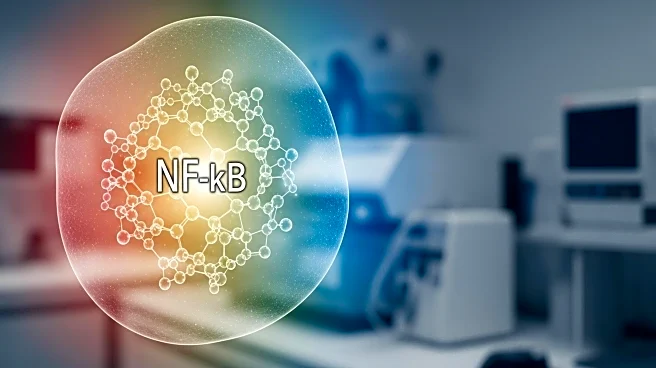What's Happening?
A study published in Nature has investigated the role of Nuclear Factor Kappa B (NF-kB) in neutrophil maturation. The research developed a model cell line to measure NF-kB activation during neutrophil maturation at single-cell resolution. Findings indicate that NF-kB activation increases during neutrophil maturation, suggesting its role in regulating survival and effector functions. The study provides insights into the molecular mechanisms underlying neutrophil maturation and the potential implications for immune response regulation.
Why It's Important?
Understanding NF-kB activity in neutrophil maturation is crucial for immunology and hematopoiesis research. Neutrophils play a key role in the body's defense against infections, and insights into their maturation process could lead to advancements in treatments for inflammatory and immune-related conditions. The study's findings may influence future research on immune system regulation and the development of therapies targeting NF-kB pathways.
What's Next?
Further research is needed to explore the implications of NF-kB activation in neutrophil maturation and its potential role in immune response regulation. Scientists may investigate the therapeutic potential of modulating NF-kB activity in neutrophils to treat inflammatory diseases. The study opens avenues for exploring NF-kB's role in other immune cells and conditions.
Beyond the Headlines
The research highlights the complexity of immune system regulation and the importance of understanding cellular processes at a molecular level. It raises questions about the potential for targeted therapies that modulate NF-kB activity, offering new approaches to treating immune-related conditions. The study underscores the need for continued investment in basic scientific research to uncover the mechanisms of health and disease.











